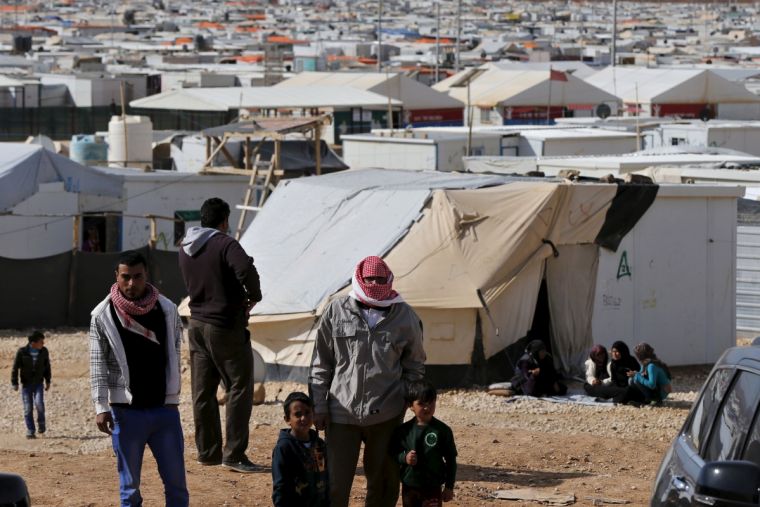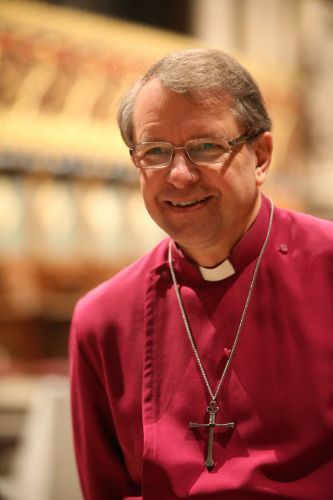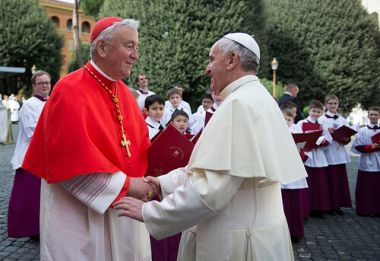UK Church leaders reluctant to declare ISIS killings 'genocide'
Christian leaders in Britain are reluctant to use the term 'genocide' to refer to ISIS' atrocities against Christians, Yazidis and other religious minorities in the Middle East.
Ahead of a House of Commons debate next Wednesday, Christian Today found neither the Church of England, nor the Catholic Church in the UK, nor the Coptic Church in the UK were willing to openly advocate for the use of the word.

The Prime Minister has until now refused to follow the European Parliament and the White House in declaring ISIS' killings as genocide. His argument has been that genocide is a legal term and should be a matter for international courts and not governments.
The Catholic peer Lord Alton has led a campaign to pressurize David Cameron into using the term. He told Christian Today it was "vitally important" the government change its position. However the most senior Catholic figure in Britain is among a group of cautious Christian figures.

Cardinal Vincent Nichols, Archbishop of Westminster and president of the Catholic bishops' conference in England and Wales, said he understood the use of the word in general language. However his difficultly was that "genocide seems to suggest a single target. Whereas what we are seeing in the Middle East has multiple religious targets and multiple ethnic targets."
He continued to say genocide was a legal term. "Therefore I quite understand the point of view that says the technical use of the term genocide is for courts to decide," he said.
Neither the Archbishop of Canterbury nor the Archbishop of York were available for comment but both have also avoided the term. Justin Welby has said Christians face "elimination" at the hands of ISIS but has not referred to it as a genocide.
Rt Rev Paul Butler, Bishop of Durham, told Christian Today it was "complicated" as many Muslims had been killed too.
"I don't want to reduce genocide of its meaning, but nor do I want to diminish the horrors of what ISIS have been doing in terms of attacking our communities – the Christian communities, the Yazidi communities, and they've been killing many fellow Muslims as well."
He said it "appears to be genocide" as entire communities have been wiped out, but added: "We need to make sure we're not diminishing the word of its power."

Bishop Angaelos, the general bishop of the Coptic Orthodox Church in the UK, has previously been the most outspoken advocate for describing ISIS' atrocities as genocide. However when asked by Christian Today whether he thought the right decision was for the UK government to declare a genocide, he said: "I think the right decision would be to have a robust discussion in parliament and then make a decision."
Bishop Angaelos joined the campaign for the US administration to declare a genocide last month. But he told Christian Today on Friday his main concern had been the White House would declare a genocide against Yazidis but not Christians and the "distorted message" that would send out.
When asked whether he thought the British government should declare genocide he said: "I quite understood their position." He added: "I have every confidence the UK government will make the right decision."
One of the reasons Christian leaders may be so hesitant is because they fear promoting a Muslim versus Christian rhetoric when, as Bishop Butler notes, thousands of Muslims have been killed by ISIS. Another reason is it risks devaluing the strength of the legal term because the conflict is so complex.
Nevertheless Pope Francis remains free of such concerns. It is nearly a year since the Catholic leader referred to a Christian "genocide" in the Middle East.
"In this third world war, waged piecemeal, which we are now experiencing, a form of genocide is taking place, and it must end," he said last July.











